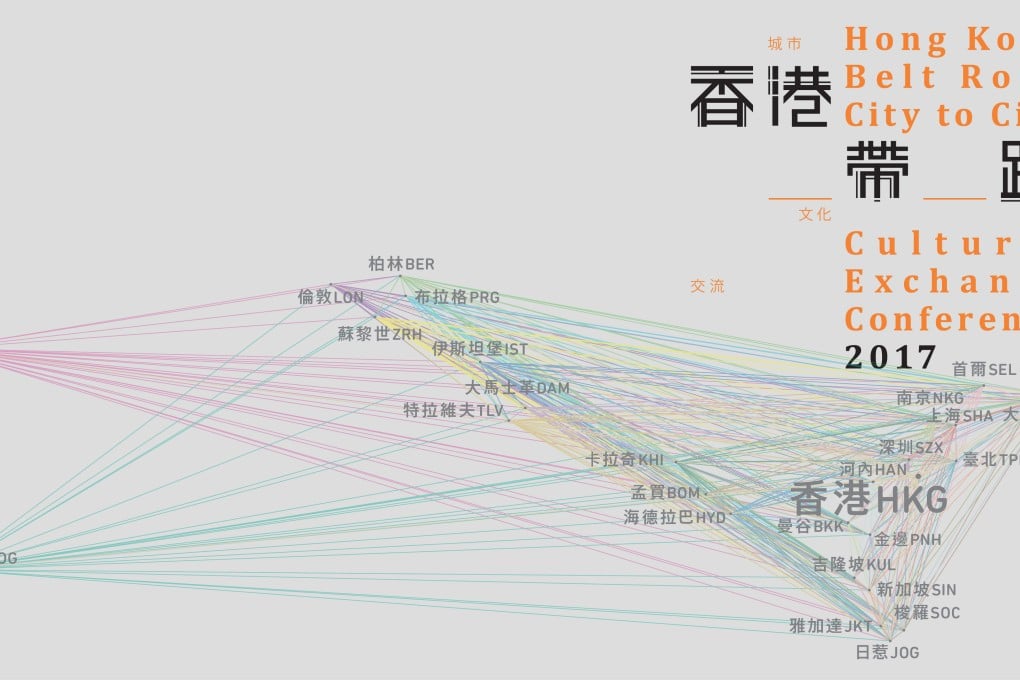Hong Kong Belt-Road: Experimental Art X Multicultural Exchange X City-to-City Conference
[Sponsored Article] “Shanghai is interested in collaborating with Hong Kong because we can give their research studies a much broader scope and vision,” explained Danny Yung, founding member and co-artistic director of the Hong Kong-based performance company Zuni Icosahedron.

[Sponsored Article]
“Shanghai is interested in collaborating with Hong Kong because we can give their research studies a much broader scope and vision,” explained Danny Yung, founding member and co-artistic director of the Hong Kong-based performance company Zuni Icosahedron. “From a pragmatic point of view, we can channel more resources to their projects and increase the diversity. Marketing wise, our participation certainly lends them an international perspective.”
In just a few lines, one of Hong Kong’s leading cultural advocates succinctly summarized the unique competitive edge the city still commands when it comes to positioning the S.A.R. within the Greater China region. Danny Yung was introducing programmes presented by Zuni Icosahedron and scheduled for the months of November and December. The central event he referred to was “Hong Kong-Taipei-Shanghai-Shenzhen City-to-City Cultural Exchange Conference: 20th Anniversary” (Cultural Centre, December 7 to 8), which began two decades ago as an occasion for representatives from four cities in the region with the same cultural heritage to meet and share their experiences and views on cultural phenomena.
The theme for this year is “Cultural Exchange and City Branding”, and the Honourable Mr. Lau Kong-wah (Secretary for Home Affairs) will officiate at the opening ceremony and deliver the opening speech. The two-day event will focus on four areas: (a) international art events and art festival organizations; (b) governments and legislatures; (c) universities and research institutes, and (d) foundations, public media and awarding bodies for arts awards. The conference will compare the views of government bodies with those of private organizations, and will assess the role these four types of institutions play in advancing cultural exchanges and improving the quality of cultural life in these cities.

The first day of the conference will be followed by a performance at the Cultural Center’s Studio Theatre, a short piece that forms a part of the series titled “Belt-Road Performing Arts Master Class and One Table Two Chairs”. The series features twelve masters and young artists of traditional and contemporary art forms from cities mostly located along the Silk Road Economic Belt and the 21st century Maritime Silk Road (Belt & Road regions): they are performers and choreographers from Istanbul, Phnom Penh, Bangkok, Mumbai, Nanjing, Tel Aviv, Damascus/Berlin, Yogyakarta, Bogota/Berlin, and Osaka/New York. They will stage their own creative works and conduct master classes in the Cultural Centre’s mirror-clad Studio Theatre, and under the setup of the “One Table Two Chairs” concept adapted from Xiqu (戲曲, or traditional Chinese theatre/opera). Their demonstrations and performances reinforce and contribute to the programmes’s main theme of city-to-city and east-west multicultural exchange.

The highlight of Zuni’s programme is an extension of its “City-to-City Conference” concept that embraces China’s ambitious Belt & Road Initiative – but with a cultural twist that is in line with the group’s vision. “Hong Kong Belt-Road City-to-City Cultural Exchange Conference 2017” will be held in the Cultural Centre from December 9 to 10, and the opening ceremony of the event will be officiated by the Honourable Mrs. Lam Cheng Yuet-ngor (Chief Executive of Hong Kong S.A.R.). Government policy makers, academics, cultural administrators and practitioners from cities located along the Belt & Road regions will hold panel discussions on the role played by governments, art organizations, academic and research institutes as well as foundations and public media in promoting cultural exchange and elevating the cultural life of cities. There will be a special emphasis on the importance and impact of thinktanks on the formulation of long-term cultural policies.

Over the past years, Zuni has embarked on a journey of promoting cultural exchange through forums and conferences. The goal is to explore and experiment with different modes and mechanism for conducting multicultural exchange. Their experience with the twenty-year-old “City-to-City Conference” finally led to the launch of “Hong Kong Belt-Road City-to-City Cultural Exchange Conference 2017”, which is a continuation of the concept of World Cultural Forum. The next step is to secure the wherewithal for building a non-governmental cultural thinktank to take up the three-fold function of research, networking and servicing.
It is the conviction of Danny Yung that cultural thinktanks are essential to the formulation of holistic visions, which will provide guidance to the quest for a better society. Knowledge-based visions will also help produce the mandate and the blueprint for long-term planning, which is essential to formulation of effective government policies. He considers it unfortunate for Hong Kong to have forsaken its thinktank culture, and instead resorts to adopting a reactive approach to tackle its many socio-political and economic challenges. In this respect, the S.A.R. still has the comparative advantage: whereas mainland China boasts a huge reservoir of human talent in almost every field, Hong Kong can provide the conditions and the environment most favorable to the operation of cultural thinktanks in the Greater China region.
“Hong Kong-Taipei-Shanghai-Shenzhen City-to-City Cultural Exchange Conference (City-to-City Conference): 20th Anniversary”
Date: 7-8 December
“Belt-Road Performing One Table Two Chairs”
Date:7-8 December
“Hong Kong Belt-Road City-to-City Cultural Exchange Conference 2017”
Date: 9 -10 December
Venue:Studio Theatre and Grand Theatre, Hong Kong Cultural Centre
Programme Inquiries:2566 9696
Website: www.zuniseason.org.hk